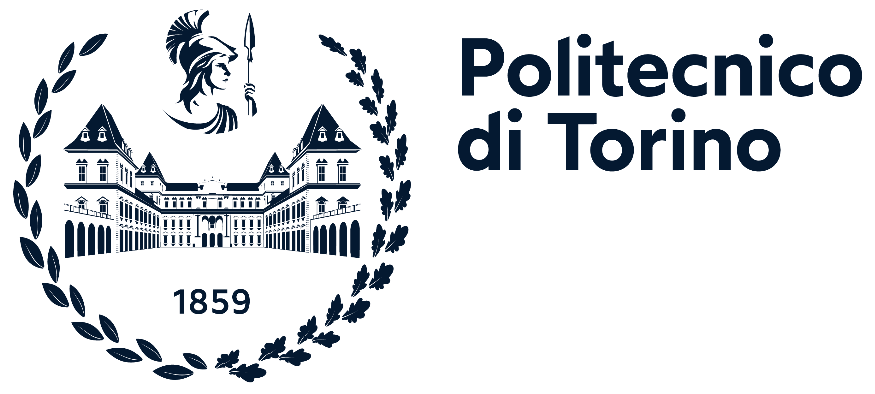Key Dates Full Papers
Abstract Submission Deadline
February 6th, 2022 (AoE) (Extended)
Paper Submission Deadline
February 13th, 2022 (AoE) (Extended)
Author Notification
March 22th, 2022
Final Papers Due
April 8th, 2022 (AoE) (Extended)
Key Dates Posters
Paper Submission Deadline
April 3rd, 2022
Author Notification
April 5th, 2022
Final Papers Due
April 8th, 2022
Submission
Submit your paper
here
Submit your poster
here
Sponsors


Socials


Previous Conferences
2021
2020,
2019,
2018,
2017,
2016,
2015,
2014,
2013,
2012,
2011,
2010,
2009,
2008,
2007,
2006,
2005,
2004
General Chair
Luca Sterpone
Politecnico di Torino, Italy
For more information, visit the website at
www.computingfrontiers.org

Special session
Proposals are solicited for special sessions to be organized in conjunction with the 2022 ACM Computing Frontiers Conference. We welcome proposals for special sessions, thematic sessions related to innovative computing systems. A complete list of topics of interest can be found in the conference call for papers at http://www.computingfrontiers.org/ and listed below. Please submit your Special Session proposals (no more than 2 pages) to Andrea Bartolini (a.bartolini@unibo.it) and Anastasiia Butko (abutko@lbl.gov) on or before Dec. 21th, 2021. Only emails with the following email object will be considered: [CF22] Special Session proposal submission.
Please include the following information in your proposal:
• Proposed title
• Organizers and affiliations
• Special Session duration
• A sample call for papers, including the special session main topics and submission deadlines
Topics of Interest:
• Innovative Computing Approaches, Architectures, Accelerators, Algorithms, and Models
• Quantum computing systems
• Technological Scaling Limits and Beyond
• Sustainable and Green Computing
• Efficient AI computing
• Embedded, IoT, and Cyber-Physical Systems
• Large-Scale System Design and Networking
• System Software, Compiler Technologies, and Programming Languages
• Fault Tolerance, and Resilience
• Security
• Computers and Society
Special Session #1
Computer Architectures in Space — CompSpace '22
Aim and Scope:
The aerospace market has undergone rapid changes within the last 20 years. Due to technological progress in consumer electronics satellite design has evolved from the purely use of customised
hardware solutions towards the utilisation of commercial off-the- shelf electronics, potentially leading to higher cost efficiency and an increased system performance. The dawn of the CubeSats and upcoming Mega-Constellations of miniaturised satellites are currently fueling the progress, attracting venture capital in a never seen before ratio. Mega-Constellations of satellites for a diverse range of applications have become reality with the successful funding of OneWeb.
While using COTS electronics, such missions require an increased level of dependability in all subsystems to enable their use within critical missions and for such with prolonged lifetime re-
quirements. However, miniaturised satellites are plagued by low dependability, and require failure tolerance and reliability-enhancing measures to be implemented. Furthermore, on board computers of such spacecraft need to consider specific boundary conditions, which can differ significantly from those of standard computing systems. These comprise environmental factors like launch loads or radiations robustness but also limitations regarding power consumption, mass or costs.
After its successful introduction as a workshop at ARCS2017 in Vienna and successful subsequent workshops before the pandemic, we decided to catch up as a special session at CF2022.
We aim at discussing existing and novel approaches for computer architectures and their applications in space, targeting an audience from computer architects to space engineers working on miniaturised as well as traditional larger scale satellites as well as representatives from space agencies. Synergies to existing terrestrial applications as well as computing architectures of constellations and swarms of satellites are a focus of the workshop, being firmly embedded
into the main conference. The ARCS conferences series has over 30 years of tradition reporting leading edge research in computer architecture and operating systems.
Contributions on the topic of Hardware and Software Architecture of spaceflight on board computers are of particular interest but not limited to:
- Dependable spacecraft and payload computer architectures
- Computer architectures in spaceflight, e.g. FPGAs
- Mitigation of radiation induced errors
- Computing on SmallSats and CubeSats
- Space Mission results and lessons learned
- Constellations and Swarms
- Modified COTS solutions
- Real Time and fault tolerance on COTS solutions
- Fault detection and fault mitigation
- Parallel and Distributed Computing in space
- Fault tolerance techniques and strategies in space
- Cloud Computing and Big Data in space application environments
- Validation, Certification, Testing and test results
- Feasibility of machine learning approaches on OBCs
Website:
https://compspace.in.tum.de/
Information for Authors
Accepted papers will be published by ACM.
The workshop will focus on research presentations as well as brainstorming sessions.
Therefore, two kinds of contributions are welcome:
- Research papers documenting results of scientific investigations
- Position papers proposing strategies or discussing open problems






